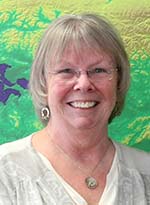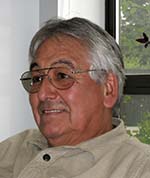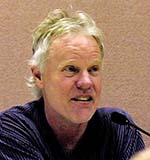By ALICIA ZORZETTO
Digital Collections Librarian
Twenty-five years after the Exxon Valdez disaster, the voices of 20 local citizens are being preserved as part of the Oral History Program at the University of Alaska Fairbanks.
The university created this archive of stories, known as “Project Jukebox,” to preserve audio and video recordings related to aspects of Alaska’s history and its people. This year, the council is partnering with the university to create an Exxon Valdez oil spill portion of the archive. Funding is provided by the council as well as a generous contribution from the Institute of Museum and Library Services.
Oral history projects change the way we look at an event. The Exxon Valdez oil spill oral history project will help us broaden our understanding of this tragic incident by incorporating the voices of those who lived throughout that long-standing turmoil.
This emotionally driven exhibit provides a comprehensive picture of the oil spill by outlining the consequences of the spill from those who experienced the effects first-hand. The narrators’ experiences provide a unique perspective that helps us understand the diverse effects of technological disasters.
The project tells the stories of an assortment of people including children, fishermen, clean-up workers, industry representatives, and political activists.
Recordings come from a variety of sources including:
- Newly recorded videos
- Audio recordings of interviews for the council commissioned book “The Spill: Personal Stories of the Exxon Valdez Disaster”
- Historical videos from the collections at Alaska Resources Library and Information Services.
These diverse perspectives allows for a more complete interpretation of the spill. The project launch date is July 31, 2014 and will be available via: www.jukebox.uaf.edu
Excerpts:
Marilyn Leland, Cordova District Fishermen United

“As soon as the word got out (about the oil spill) on the street, we had fishermen coming into the office wanting to help. And initially, in the earliest days, I really felt that the attitude was one neighbor helping another neighbor because we had a problem. Money wasn’t even brought up at all. And when I would talk to different people to tell them we had boats, the most memorable conversation for me was someone at Alyeska responding with ‘we can’t afford the liability of using amateurs.’ And my response to them was that the amateurs are the ones who have just flown in from Houston. I’m talking about fishermen who have spent their entire lives out in Prince William Sound hauling seines and gill nets. Trust me. They are not amateurs, and they are perfectly capable of doing this work.”
Gary Bader, Alyeska Pipeline Service Co.

My first reaction was one of…I think we all were almost stunned. We were surprised not only that it happened, but that it could happen. Our culture at the time was one of believing that it wouldn’t happen, it couldn’t happen. The second reaction was that it wouldn’t take long to clean it up. That we’d have it cleaned up in three or four days so it’s not such a big deal. Even though there was a lot of oil. But we had no idea that in fact we weren’t ready….”
“…And then a north wind came through as the north winds do in March in Valdez. And it just blew that oil everywhere. Just blew it everywhere. I mean it was done. It was out of control at that point. There was no amount of boom that was going to keep that oil contained.”
“The window of opportunity was in the first 48 hours. And for the first 48 hours we were trying to figure out what to do. Not do it, but figure out what to do. And we became in Alyeska, insulated within ourselves. Instead of moving outward to get the help we needed, we moved inward.”
Walter Meganack, Port Graham

Except from the speech “The Day the Water Died”, read by Elenore McMullen at an Oiled Mayors Conference in Valdez, June 1989.
“…The roots of our lives grow deep into the water and land. That is who we are. We are like our brothers the bear and the deer. We live on the land and our food is mostly from the water. The bear eats the fish, the deer eats the seaweed, Natives eat all of the life in the sea and the water. The land and the water are our sources of life. The water is sacred. The water is like a baptismal font and its abundance is the holy communion of our lives. Of all things that we have not lost since non-Natives came to our land, we have never lost our connection with the water. The water is our source of life. So long as the water is alive, the Natives are alive…
…We have lived through devastations. Our villages were almost destroyed by chicken pox and tuberculosis. We fight the battles of alcohol and drug abuse and we survive. A wise white man once said, ‘where there is life, there is hope.’ And that is true. But what we see now is death, death not of each other, but of a source of life, the water. We will need much help, much listening in order to live through the long barren season of dead water, a longer winter than ever before. I am an elder. I am a chief. I will not lose hope. I will help my people. We have never lived through this kind of death, but we have lived through lots of other kinds of death. We will learn from the past, we will learn from each other, and we will live. The water is dead, but we are alive, and where there is life there is hope.”
Rick Steiner, Cordova

“On behalf of Cordova District Fishermen United, I organized a meeting with all the tanker owners in May or early June of 1989 here in Anchorage; two and a half months after the spill had occurred. It was really fresh, and the time to strike was then. So we got the tanker owners together with a number of the fishing representatives in a small room we rented in the basement of the Captain Cook Hotel…This was their first face-to-face meeting with Prince William Sound fishing organizations, whose lives and businesses they had just turned upside-down through their collective negligence. At that meeting we had a list of demands. They were not nice suggestions; they were demands from the fishing industry of the Prince William Sound as to how to prevent this from happening again…”
“…We knew we couldn’t do much to clean it up or to restore the damage caused, but at the minimum, we had to do everything possible to prevent another oil spill. One central tenant of these demands was the establishment of a citizens’ advisory council.”
“…The response came from BP, and the one thing they agreed to right then was the establishment of a citizens’ advisory council. They said you will have it. BP consented and the other oil companies followed suit. That was the agreement, and they followed through. They had to; the political pressure was enormous for them to do something, and this was eminently reasonable. We should have been successful setting it up before the oil spill, but we weren’t. As a result the oil spill happened, which costs billions of dollars and lives lost unnecessarily.”